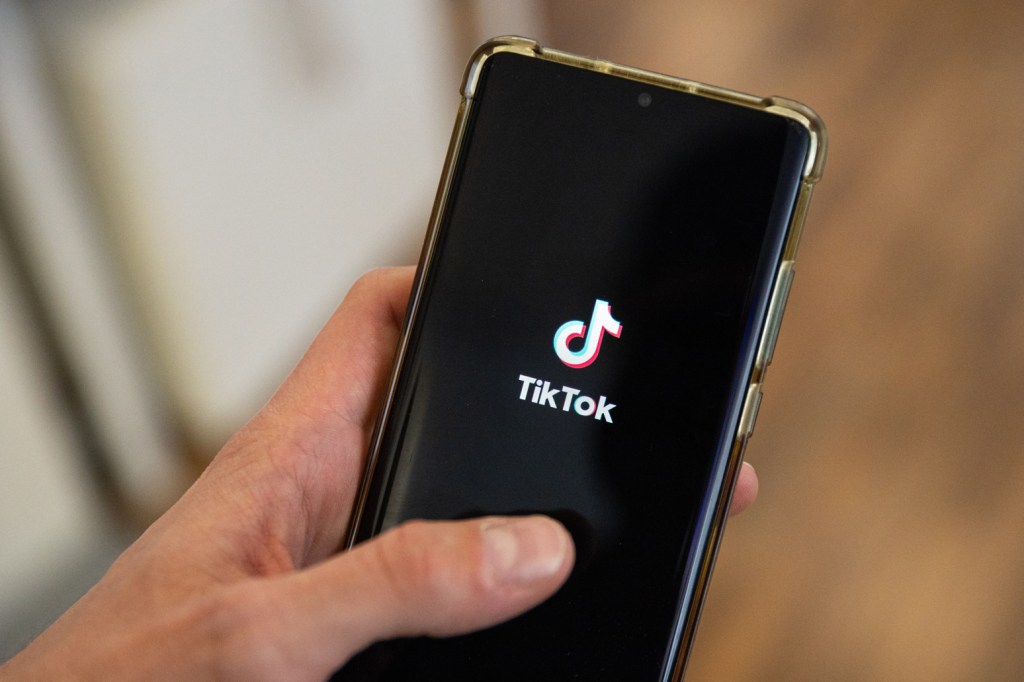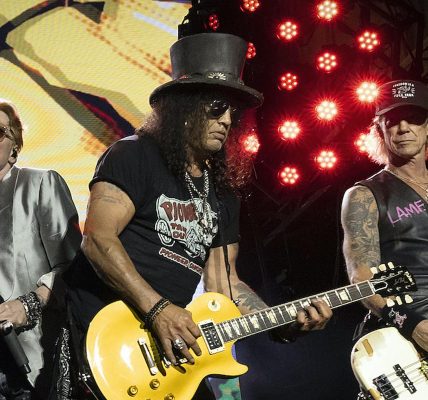On January 19, TikTok announced that it would be restoring access for users in the United States shortly after the widely popular video-sharing platform experienced a temporary outage. This disruption occurred in response to a federal ban, which President-elect Donald Trump indicated he would seek to delay through an executive order on his first day in office. This situation highlights the ongoing tension between social media platforms and governmental regulations, particularly regarding their ownership and data security concerns.
Trump?s intentions to issue an executive order were aimed at providing TikTok?s parent company, ByteDance, which is based in China, with additional time to secure an approved buyer before the impending ban would take effect. He shared this update on his Truth Social account, coinciding with the moment millions of U.S. TikTok users woke up to find themselves unable to access the app or its features, further intensifying the ongoing debate about social media governance and national security.
In compliance with the new law, both Google and Apple removed the TikTok app from their respective digital stores. This legal requirement mandated the removal of the app unless ByteDance could finalize a sale of its U.S. operations by the specified deadline. The law, which received broad bipartisan support in April, imposes significant financial penalties for non-compliance, reflecting the seriousness of the national security concerns surrounding this popular social media platform.
The U.S. company managing TikTok issued a statement on X, indicating that Trump?s announcement provided ?the necessary clarity and assurance? to their service providers. This assurance meant that these providers would not face penalties for continuing to offer TikTok to more than 170 million American users. This communication is critical, as it reassures both users and service providers amidst the uncertainty surrounding TikTok?s operational status in the U.S. market.
Following TikTok?s announcement, reports from users indicated that the app was functioning again for many. However, despite some users regaining access, TikTok remained unavailable for download in the Apple and Google app stores. This inconsistency in service availability raised concerns about the platform’s future and accessibility, as neither Apple nor Google responded to inquiries regarding the situation over the weekend, leaving users in a state of confusion.
The law enacted on January 19 required ByteDance to sever ties with TikTok?s U.S. operations due to substantial national security concerns linked to the app’s Chinese origins. However, the legislation also granted the sitting president the power to extend this deadline by 90 days if a credible sale was in progress. This provision indicates the complexities involved in regulating international tech companies and the balancing act between security and user access.
Despite receiving a handful of offers from potential buyers, ByteDance had previously stated it would not consent to a sale. Trump’s executive order aimed to ?extend the period of time before the law?s prohibitions take effect? while also ?confirming that there will be no liability for any company that helped keep TikTok operational prior to my executive order.? This move demonstrates the intricate interplay between political decisions and commercial operations in the tech landscape.
?Americans deserve to see our exciting Inauguration on Monday, as well as other events and conversations,? Trump expressed in his communication, emphasizing the importance of access to content during significant cultural moments. This statement resonates with the public’s desire for uninterrupted access to social media platforms, particularly during major national events.
The legal implications of Trump?s proposed actions remain uncertain, especially since the U.S. Supreme Court unanimously upheld the ban just days prior on January 17. The law came into effect just before Trump?s anticipated return to the White House, highlighting the contentious nature of social media regulation and its timing with political events.
Some lawmakers, including Republicans who initially supported the sale-or-ban legislation, continue to advocate for the ban. Senator Tom Cotton of Arkansas cautioned companies on social media against providing TikTok with the necessary technical support to maintain its operations. This ongoing political discourse underscores the significant divisions surrounding social media policy and national security.
?Any company that hosts, distributes, services, or otherwise facilitates communist-controlled TikTok could face hundreds of billions of dollars in ruinous liabilities under the law,? Cotton warned on X. He emphasized that the ramifications of supporting TikTok could extend beyond legal consequences to include shareholder lawsuits and inquiries from state attorneys general. This warning illustrates the high stakes involved in the ongoing debate about the app’s future.
The fluctuating availability of TikTok followed the Supreme Court ruling that determined the risks posed to national security by TikTok?s connections to China outweighed concerns about suppressing free speech for its millions of American users. This ruling points to the complex relationship between user rights and national security that continues to evolve in the digital age.
As of Saturday night, TikTok users attempting to access the platform were met with a notification stating, ?Sorry, TikTok isn?t available right now.? This message indicated that the enactment of a law banning TikTok had rendered the app unusable, leaving many users frustrated and uncertain about the future of their favorite platform.
?A law banning TikTok has been enacted in the U.S.,? the notification explained. ?Unfortunately that means you can?t use TikTok for now.? This communication reflects the significant impact that legal decisions can have on digital platforms and their user communities, emphasizing the importance of transparency in such transitions.
The abrupt service interruption took many TikTok users by surprise. Experts had anticipated that the law would not necessitate TikTok’s immediate shutdown, only the removal of the app from stores. Current users were expected to retain access to their videos until updates ceased, thus allowing the app to function temporarily despite the changes in legal status.
?The community on TikTok is like nothing else, so it?s weird to not have that anymore,? stated content creator Tiffany Watson, 20, reflecting on the unique social environment fostered by the platform. Her statement underscores the emotional connection many users have with TikTok, highlighting the potential consequences of losing access to such a vibrant community.
Watson shared that she had been in denial about the impending shutdown and now plans to focus on enhancing her presence on Instagram and YouTube during this unexpected downtime. This pivot reveals the adaptability of content creators as they seek to maintain their audience engagement across various platforms.
?There are still people out there who want beauty content,? Watson remarked, emphasizing the ongoing demand for beauty-related content in the digital space. Her determination to continue creating content reflects the resilience of creators in navigating the changing landscape of social media.
The TikTok app was removed from major app stores late Saturday, signaling a significant shift in its accessibility. Apple informed its customers that it had also removed other apps developed by ByteDance, including Lemon8, which had been marketed as a TikTok alternative, and popular tools like the video editing app CapCut and photo editing application Hypic. This comprehensive removal underscores the broader implications of the ban on ByteDance?s suite of applications.
?Apple is obligated to follow the laws in the jurisdictions where it operates,? the company stated, reinforcing the legal considerations that tech companies must navigate amidst evolving regulatory environments.
Trump?s strategy to protect TikTok on his first day in office reflects both the coincidental timing of the ban and the intricate political landscape surrounding a social media platform that initially gained fame through lighthearted videos featuring dancing and music clips. This juxtaposition of entertainment and serious political implications illustrates the multifaceted nature of social media in contemporary society.
During his initial presidential term, Trump had previously issued executive orders banning TikTok and the Chinese messaging app WeChat, actions that were later blocked by courts. However, as discussions surrounding a ban gained momentum in Congress last year, he opposed such legislation. Trump has since acknowledged TikTok’s role in garnering support from younger voters, highlighting the platform’s significant influence in political engagement.
Despite the Biden administration?s previous involvement in enacting the nationwide ban, officials have recently emphasized that they do not intend to implement or enforce the ban before Trump assumes office on Monday. This announcement illustrates the shifting priorities within the government and the complex dynamics at play in regulating social media platforms.
Throughout the nine months since Congress passed the sale-or-ban law, no definitive buyers have emerged, and ByteDance has publicly maintained its position against selling TikTok. Nevertheless, Trump expressed hope that his administration could facilitate a deal to ?save? the app, underlining the ongoing negotiations and political maneuvering surrounding tech ownership in the U.S.
TikTok CEO Shou Chew is anticipated to attend Trump?s inauguration, indicating the company’s high-profile status amid these discussions and the potential implications for its future in the U.S. market.
Chew released a video late Saturday thanking Trump for his commitment to collaborate with TikTok to ensure its availability in the U.S. He commended Trump?s ?strong stand for the First Amendment and against arbitrary censorship,? emphasizing the platform’s role in promoting free expression amidst regulatory challenges.
Trump?s selection for national security adviser, Michael Waltz, revealed to CBS News on Sunday that the president-elect discussed the TikTok situation during a weekend call with Chinese President Xi Jinping, highlighting the international dimensions of this issue and their mutual agreement to collaborate on resolving it.
On Saturday, the artificial intelligence startup Perplexity AI submitted a proposal to ByteDance to create a new entity that would merge Perplexity with TikTok?s U.S. business operations. This proposal indicates the interest from innovative tech companies in exploring alternatives that can sustain TikTok?s presence in the U.S. market.
Perplexity does not seek to acquire the ByteDance algorithm that curates TikTok user videos according to individual preferences, a feature that has contributed significantly to the platform’s widespread appeal and success. This strategic approach demonstrates the complexities of ownership and data management in the social media landscape.
Interest in TikTok continues to grow among investors. Notably, Shark Tank star Kevin O?Leary recently stated that a group of investors, including himself and billionaire Frank McCourt, had made an offer of $20 billion in cash to ByteDance for TikTok. Additionally, former Treasury Secretary Steven Mnuchin has revealed plans to assemble an investor group aimed at acquiring the platform, highlighting the financial stakes involved.
In Washington, both lawmakers and administration officials have long voiced concerns regarding TikTok, warning that the algorithm determining user content is susceptible to manipulation by Chinese authorities. However, thus far, the U.S. government has not publicly disclosed any evidence indicating that TikTok has shared user data with Chinese officials or altered its algorithm to benefit Chinese interests, raising questions about the actual risks involved.






